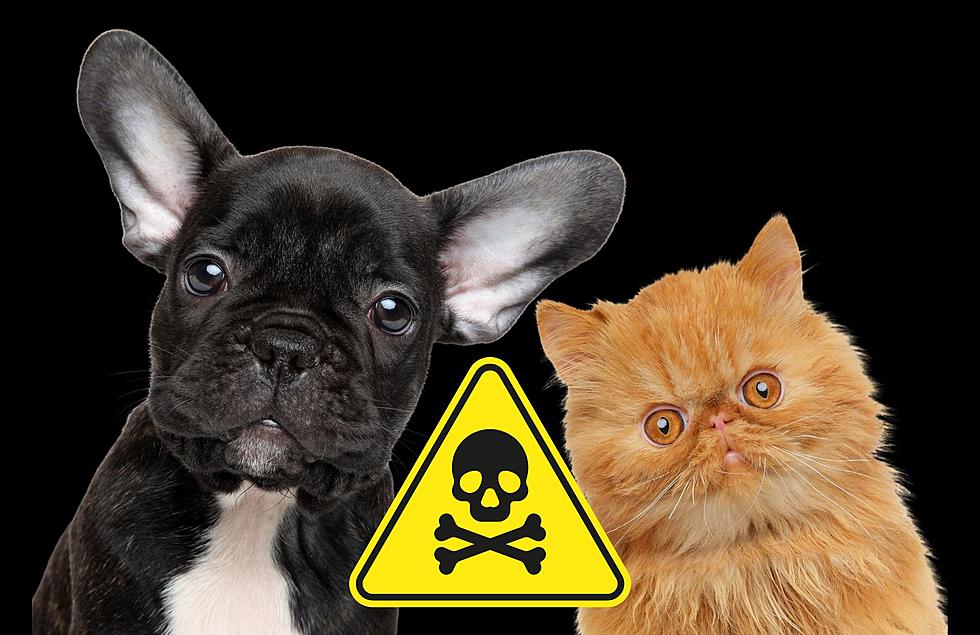
Poison To Your Pets: Keep These Five Toxic Things Away At All Costs
People love to feed their furry friends human food, but that can come with some unknown dangers.
My wife Lindsey and I almost lost our dog Benny because while we were out looking at houses to buy
he somehow jumped up on our kitchen counter and was able to drag down and eat a 1lb of Costa Rican Dark Chocolate which would have killed him if we didn't get to the emergency vet as we did.
Pet experts have shared some of the most toxic things you need to keep away from your dog or cat.
March Is Pet Postion Prevention Month
A dog or cat owner would never want to hurt them but if they feed them something that they're not supposed to have it can cause anything from an upset tummy and runny stool to possibly killing the pet.
What Are The Most Toxic Things To Dogs And Cats
There are a lot of things you should avoid feeding your dog or cat but these are some of the most toxic things you want to keep away from your pets.
- Chocolate: Chocolate contains a chemical called theobromine, as well as caffeine, neither of which dogs can metabolize. The darker the chocolate, the more theobromine there is, and the more toxic it is.
- Cleaners and chemicals: Most cleaning products and chemicals, from antifreeze to pool and hot tub products, are dangerous and sometimes oddly appealing to pets.
- Foods: Grapes, raisins, onions, garlic, macadamia nuts, and cherries top the list of foods that you need to grab fast if they fall on the floor.
- Over-the-counter medications: Even small amounts of ibuprofen (Advil), acetaminophen (Tylenol), or naproxen (Aleve) can cause serious stomach and intestinal ulcers, as well as kidney failure.
- Plants: Lilies, tulips, daffodils, and sago palms are high on the list of houseplants and flowers that are toxic to pets, from bulb to bloom.
- Prescription medications: Anti-inflammatory and pain medications, antidepressants, and blood pressure medications are especially dangerous, due to the risk of problems like seizures, elevated heart rate, blood pressure, and body temperature.
- Rodenticides: In some cases, pets may find and ingest the poison itself, and in others, particularly with cats, exposure may occur when a poisoned rodent is eaten.
- Xylitol: A sweetener used most often in sugar-free foods, xylitol causes a rapid drop in blood sugar, resulting in weakness and seizures.
What Do I Do If My Pet Ate Something Toxic?
You need to act fast because time can make all the difference for your sick pet.
immediately call your veterinarian or a phone hotline to help with pet poisonings, You can try calling Pet Poison Helpline at 855-764-7661, or ASPCA Animal Poison Control at 888-426-4435.
Those two hotlines will probably be able to help you but they could charge you a consultation fee so keep that in mind.

